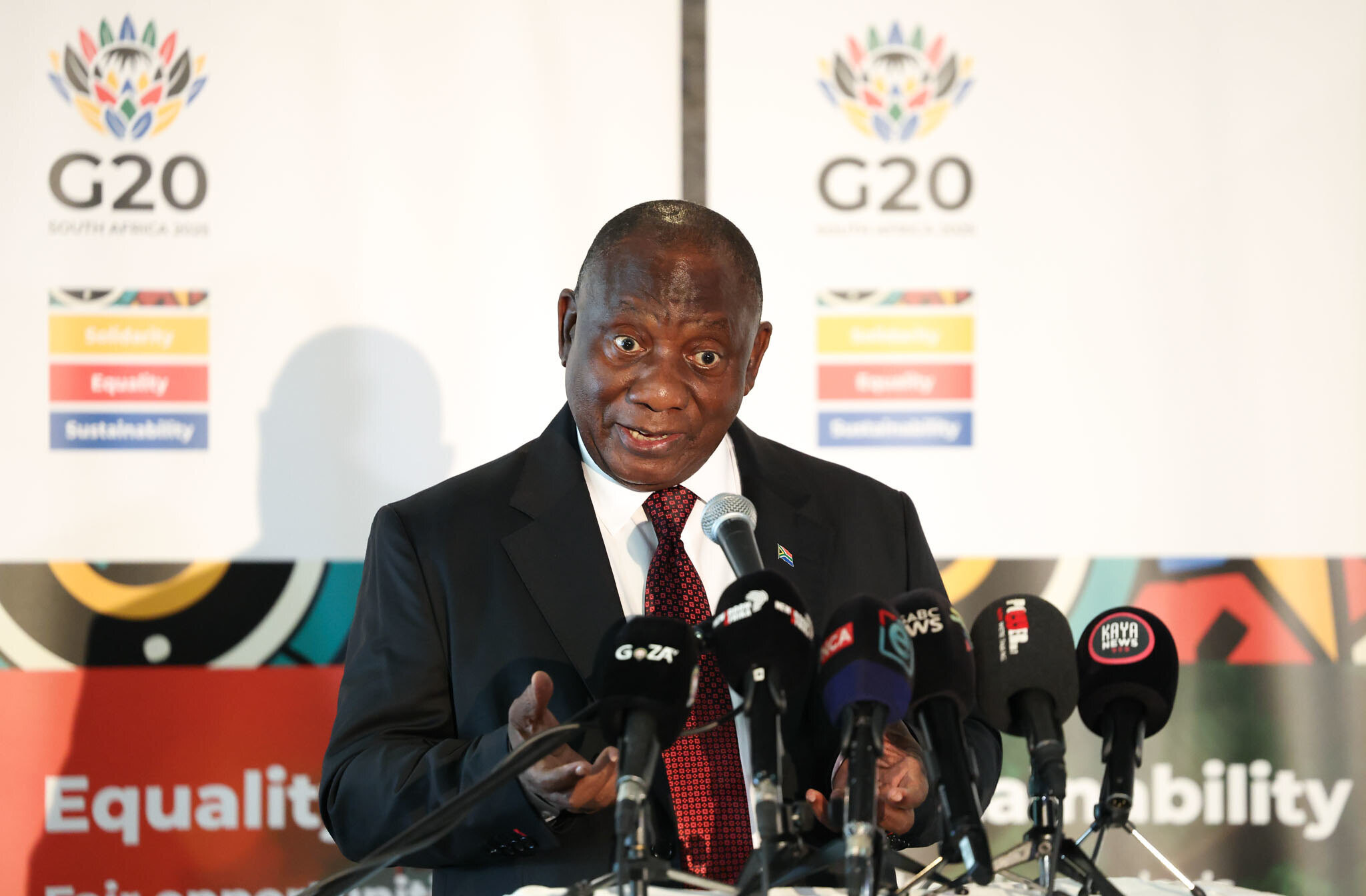What every leader needs to navigate the Fourth Industrial Revolution

'There is no one-size-fits-all approach to governance' Image: REUTERS/James Akena
Rapid changes in technology have resulted in a fundamental shift in how we interact with the world and how we understand its borders and boundaries.
But the impact of technology has not been unequivocally positive. While social media has empowered individuals to break news before major networks can and to participate more democratically in global conversations, fake news and alternative facts have created distress, uncertainty and new barriers.
Technology has caused the world to shrink, with immediate access to information and the ability to transact electronically – to a large extent – across national borders at the click of a button. Yet, in a world that seems to be more global than ever, growing unease about the long-term impact of this on society has resulted in many societies withdrawing from the global back into the local, with the familiar risks of populism, nationalism and protectionism once again threatening some parts of the world.
Strong leadership is required to spell out the consequences of current trends and provide guidance on how to successfully navigate them. A new strategic narrative is required to unite individuals, industries and countries around a long-term vision for a better world. Corporations will play a very important role in this process, but they have to join forces with civil society, governments and multilateral institutions. A commitment to responsible leadership, as well as a sophisticated understanding of our digital and glocal age, will be required to succeed.
The debate about corporate responsibility has rapidly advanced in the past few decades, with clear shifts from philanthropy to corporate social responsibility and then to a more sophisticated understanding of the strategic importance of responsible behaviour – the so-called business case for corporate responsibility. Yet, the normative foundation of responsible behaviour cannot be negated. Ultimately, some things must be done because they are the right things to do.
The contribution of Michael E. Porter and Mark R. Kramer on “creating shared value”, as well as the more recent contribution by Thomas Donaldson and James P. Walsh on “optimized collective value” are very influential in this space, with the latter emphasizing the moral aspects. Donaldson and Walsh propose a new theory of business (as opposed to the theory of the firm) and they describe “a world where collective value is optimized, where the dignity of every business participant is recognized and honoured, where every act and decision in the world of business clears the Dignity Threshold.”
According to W. Lee Howell, the emerging global narrative around the Fourth Industrial Revolution can assist corporations in reinventing themselves using digital technologies. In essence, the Fourth Industrial Revolution is characterized by a combination of emerging technologies from the physical, digital and biological worlds. It is similar to the concept of a New Renaissance, described by Ian Goldin and Chris Kutarna as a “rare moment of flourishing genius and risk that promises to reshape all our lives”.
“Looking through a Renaissance lens, what to do now becomes startlingly clear. We need to welcome genius. To understand that disruptive change and technological revolutions can spread both immense good and harm. To celebrate diversity and overcome prejudice. To raise public and private patronage. To embrace change, and strengthen public safety nets in ways that embolden us all. To build new crossroads and welcome migrants. To tear up the (mental) maps that unhelpfully divide people. To stoke virtues – especially honesty, audacity and dignity. To champion collective endeavours as well as individual freedoms,” say Goldin and Kutarna.
Martin Hilb has proposed a framework that could allow boards to help with this process, increasing the chance of success. Hilb’s New Corporate Governance framework integrates the interests of many stakeholders, including shareholders, customers, employees and civil society. The framework comprises the following components:
- Keep it situational – there is no one-size-fits-all approach to governance;
- Keep it strategic – the board is a value driver and plays a key role in developing, implementing and monitoring corporate strategy;
- Keep it integrated – director selection, performance evaluation, compensation and development should all be focused on achieving the organization’s objectives; and
- Keep it controlled – the board is responsible for compliance, control and monitoring, and therefore has to be kept up-to-date with aspects such as risk, employee morale, customer satisfaction, competitor analysis and investor opinions.
Hilb’s framework captures the essence of corporate governance: the system by which organizations are directed and controlled. To keep it situational requires the board to be fully briefed about the implications of a digital and glocal age. Howell comments on how boards can cope with uncertainty in a global context:
- Learn the difference between a risk (a measurable uncertainty) and a true uncertainty, which cannot be measured;
- Learn how to understand human error – blaming failures on human error will not lead to a better understanding of complex systems and will not lead to better outcomes in the future;
- Learn how hindsight is harmful – it blurs the distinction between knowledge about an actual situation and how people understood it at the time; and
- Learn the difference between a technical challenge, when the definition, solution and implementation are all clear; and an adaptive challenge, when a novel solution and new learning are required.
For boards to navigate their way through this complex landscape, they need to understand the context and make decisions accordingly. It is not a case of having to choose either the global or the local, or between a human-centric or automated process.
The graph below illustrates how different types of activities could be categorized conceptually. Fully automated, high-frequency trading is an example of a process that is both global and automated – it takes place without cognizance of national boundaries or the need for human intervention.
But there is also a human face to a global perspective. In the investment world, this is perhaps best personified by Nicolas Berggruen, who was known as the homeless billionaire until he finally settled in California a while ago. The same technology that drives automated trading globally might soon result in local equivalents of Alexa or Siri helping customers in even the smallest municipalities.
Finally, there will always be the need for some activity to be both local and human, for example, stocking the shelves of the nearest grocery store.

Of course, further distinctions need to be made between physical events and their impact (a local ash cloud can have global impact) and between legal structures and human participation. For instance, a global company headquartered in New York City has employees in physical locations around the world; in the case of a mining company a local labourer is unlikely to ever leave the confined space between the mine and a local community, yet that individual is part of the global headcount.
Despite this, the message is clear: knowing where to plot an event will help uncover an appropriate response. A proper understanding of the interplay between the local and the global – and the fact that glocal is not merely the midpoint between the two – as well as the human and the automated will allow boards to provide responsive and responsible leadership wherever they operate.
Don't miss any update on this topic
Create a free account and access your personalized content collection with our latest publications and analyses.
License and Republishing
World Economic Forum articles may be republished in accordance with the Creative Commons Attribution-NonCommercial-NoDerivatives 4.0 International Public License, and in accordance with our Terms of Use.
The views expressed in this article are those of the author alone and not the World Economic Forum.
Stay up to date:
Global Governance
Related topics:
Forum Stories newsletter
Bringing you weekly curated insights and analysis on the global issues that matter.
More on Global CooperationSee all
Mahmoud Mohieldin and Vera Songwe
November 20, 2025






